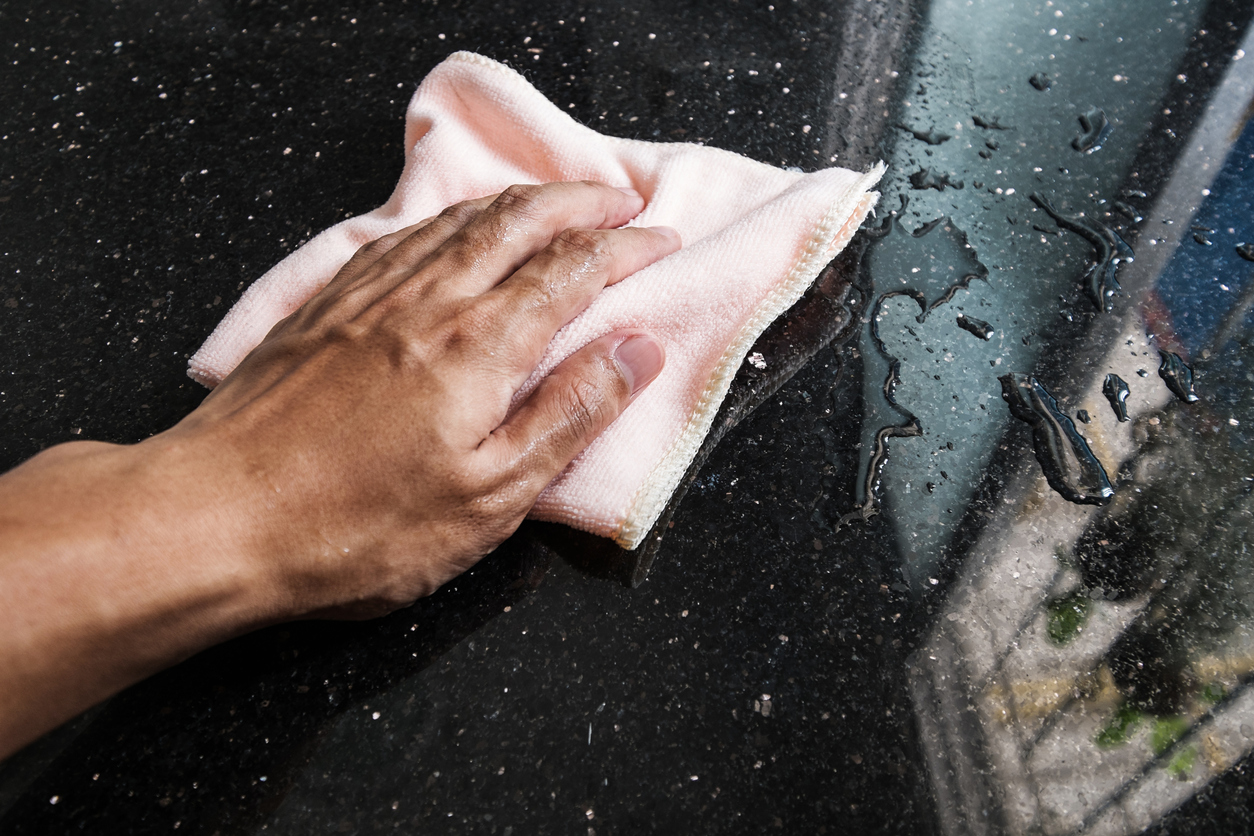Cleaner, descaler, deodorizer, disinfectant, stain remover… In the field of natural and ecological household products, white vinegar has acquired a well-deserved reputation, especially since it is also among the most economical. However, who says “natural” does not necessarily mean “harmless” and just like citric acid, lemon juice, soda crystals and even baking soda, its use should not be done without precautions. Although it is often considered a multi-use, all-in-one solution, not all surfaces in the home respond positively to its use, resulting in damage or inefficient cleaning. So let’s discover together the specific surfaces where white vinegar is not the cleaning hero we hoped for.
1) No white vinegar for surfaces disinfected with bleach
The combination of bleach and vinegar (and any other anti-limescale) is very dangerous. This actually releases chlorine, a very toxic gas. (HClO + H+ + Cl — → Cl2 + H2O) which can irritate and damage your respiratory tract as well as cleaned surfaces. Whether it is your clothes or your toilet, avoid contact which could be dangerous for your health and your interior.
2) Porous surfaces do not tolerate vinegar very well

For its effect against tartar, it is not uncommon to use vinegar in the bathroom. However, be careful, because just like ammonia, your shower and stone tiles may not tolerate it. In fact, whether we are talking about natural stone, cement, marble or granite, the use of vinegar is strictly not recommended. Its strong acidity risks irreparably damaging this porous surface (especially with a high risk of discoloration) and causing it to lose its shine. If you do not want to risk stripping or attacking them and leaving a dull stain where they are applied, avoid vinegar and replace it with black soap or Marseille soap, which are more suitable.
3) Parquet flooring and waxed wood furniture
This natural detergent is suitable in most cases, but not for the maintenance of polished furniture or even wooden floors. Indeed, this acidic liquid can tend to dissolve the wax, which makes the wood dull and dull. Some wooden floors can handle it, but when in doubt, always make sure to dilute the vinegar well to clean the wood safely.
4) Vinegar on surfaces stained with egg, avoid
Did you spill egg on the floor or counter? In this case, avoid using white vinegar! Indeed, its acidity risks promote coagulation of the egg, which will complicate your task. The raw egg will then become more gooey and therefore more difficult to clean. A simple cloth soaked in hot water and soapy water (for example dishwashing liquid or Marseille soap) will be best suited for this job.
5) Be careful with electronic devices

The screens and components of electronic devices do not necessarily tolerate white vinegar well, which risks attacking them because of its acidity. To limit the risks, we advise you to always dilute it well and avoid cleaning your devices with plenty of water. This will prevent liquid from seeping inside, with the risk of damaging your phone or television. Find our tips for cleaning the phone here and techniques for cleaning the screen on this link.
6) Kitchen knives
If we recommend vinegar occasionally to remove rust from a knife, we will generally avoid its daily use to carry out cleaning so as not to risk dulling the blades. A simple dishwashing detergent, lukewarm water and a little elbow grease will be your best allies for respectful maintenance of these kitchen tools.
7) Pearls and precious stones: not friends with white vinegar
In cultured pearls there are limestone marble and calcium carbonate. However, calcium carbonate tends to dissolve instantly when it comes into contact with vinegar. This will then irreparably damage your pearl jewelry. Also avoid its use on precious stones, old objects or pewter so as not to risk tarnishing them. Finally, if you are unsure about the maintenance of your valuable objects, prefer to opt for another gentler solution or seek the advice of a professional so as not to make mistakes.


